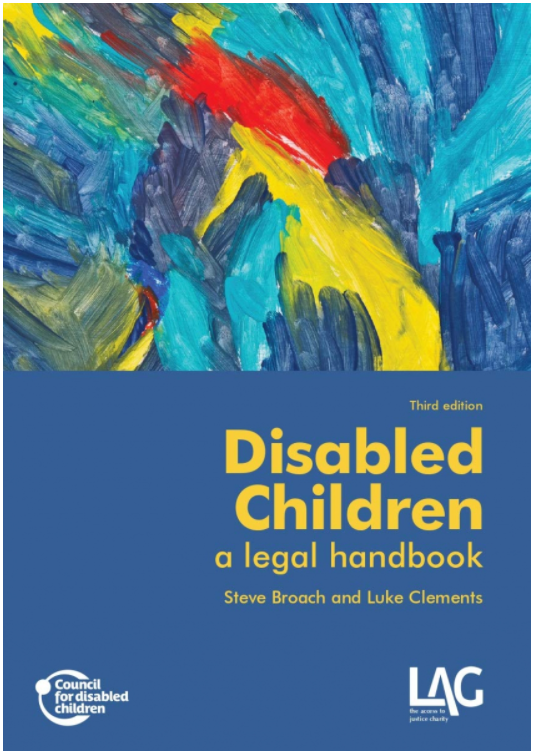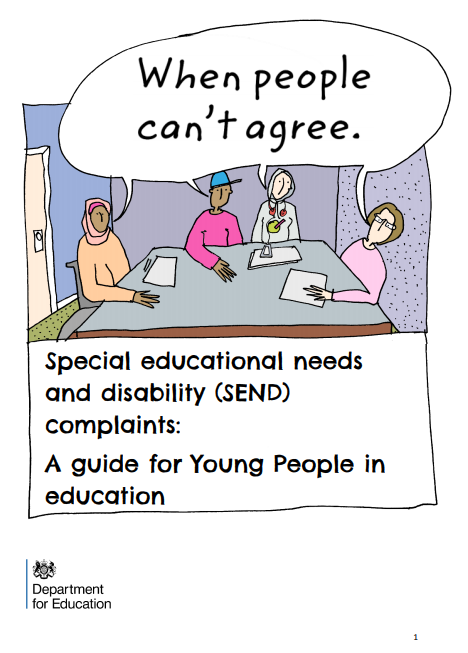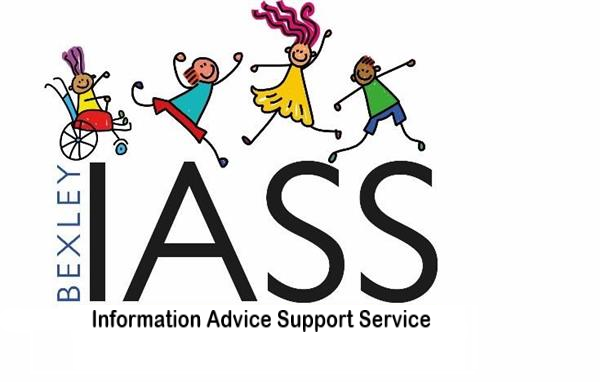There are a number of different statutory complaints procedures to deal with disputes relating to education, health and social care
The Local Authority:
You may wish to make a complaint about a local authority (“LA”) if they are failing in their duties – whether by failing to provide what they are legally required to provide, by causing significant delay, or by failing to comply with the law.
The first step is always to follow the LA’s own complaints procedure. How to complain should be explained in the LA’s local offer; if the LA has not put its complaints policy on the website then ask for a copy of the complaints procedure from their offices. This should set out the time limit for replying to a complaint.
Bexley Councils complaint procedures can be found here: Complaints Procedure – Bexley Local Offer
The Local Government and Social Care Ombudsman or Parliamentary and Health Ombudsman (LGSCO):
LGSCO is able to investigate complaints about certain matters and has wide ranging powers to make recommendations to remedy injustice including an apology or compensation.
For more information on how to complaint to the Local Government and Social Care Ombudsman or Parliamentary and Health Ombudsman click HERE
The First-tier Tribunal (Special Educational Needs and Disability) (SENDist)
SENDist hears appeals against decisions relating to Education, Health and Care (EHC) plans. This includes refusals to assess or make an EHC plan or statement or to make amendments following annual review.
The tribunal also has powers to make non-binding recommendations in relation to the health and social care parts of the EHC plan.
Tribunal claims must be issued within two months of the date of the local authority’s decision letter or one month from the date of the mediation certificate, whichever is later.
For more information on appeals to SENDist Tribunal click HERE
Mediation:
This must be considered before appeals in relation to special educational needs (SEN) and provision can be issued with the tribunal. Parents and young people can request mediation in relation to the education, health or social care provision which is in the EHC plan.
Disagreement resolution: Local authorities are also under a duty to offer disagreement resolution arrangements to avoid or resolve disputes.
For more information on Mediation and Disagreement Resolution click HERE
Disability Discrimination:
Nurseries, Schools and Colleges must take steps to ensure disabled children and young people are not substantially disadvantaged due to their disability. ‘Reasonable adjustments‘ is the term used to describe these in law.
The SEND Code of Practice summarises the Equality Act duty and says Nurseries, Schools and Colleges must:
Not directly or indirectly discriminate against, harass or victimise disabled children and young people
Make reasonable adjustments, including the provision of auxiliary aids and services, to ensure that disabled children and young people are not at a substantial disadvantage compared with their peers.
( This duty is anticipatory which means thought should to be given in advance to what disabled children and young people might require and what adjustments might need to be made to prevent that disadvantage )
If you feel your disabled child has been discriminated against (within the last six months) you could consider complaining to the SEND Tribunal.
For more information on disability discrimination click HERE
Judicial Review:
Judicial review is the legal procedure used to challenge decision making of public bodies in relation to health or social care provision or where special educational provision which is specified in an EHC plan is not being delivered and some other education decisions or failures to act such as school transport and funding cuts.
Judicial reviews must be brought promptly and within three months of the date of the decision.
For more information on the Judicial Review click HERE
This is a formal legal route, therefore it is strongly advisable to seek legal representation if you are considering this option.
For more information on applying for Judicial Review click HERE
Also refer to the links at the bottom of this page for further legal advice and whether you are eligible for legal aid.
Complaining to a School or College.
A complaint is when a parent/ carer is dissatisfied with the actions of a school. Examples of types of complaints can be:
- Bullying by a pupil or a teacher;
- Policy changes;
- Failure to follow Statutory Guidance
Statutory guidance sets out what schools and local authorities must do to comply with the law. Schools should follow the guidance unless they have a very good reason not to.
If a child or young person has been discriminated against in an education setting (school/college), you can make a formal complaint by following the complaints policy on the individual educational settings website.
It is important to establish what type of school your child attends. For assistance with this please see: Types of School.
Then select the page which is most appropriate to your situation:
Complaints against a Local Authority Maintained School
Complaints against an Academy School
You can also submit a claim can be brought to the tribunal within six months of the discriminatory act. COMPLAINING ABOUT SCHOOL.
For more advice on making a formal complaint to a school / college: IPSEA
Accessing information
The Freedom of Information Act 2000 gives you the right to access information from Public Sector organisations.
Generally, only those with Parental Responsibility will have the right to access information about a child’s educational, medical and social care records.
You can find more information about Parental Responsibility HERE
Freedom of Information Request (FOI):
You have the right to ask to see recorded information held by:
Local councils
Schools, colleges and universities
The NHS – including hospitals, GPs, dentists, pharmacists and opticians
The Freedom of Information Act (FOIA) gives you the right to see that information.
You can find out more information about making an FOI request for information HERE
Subject Access Request (SAR):
You have the right to ask an organisation whether or not they are using or storing your personal information. You can also ask them for copies of your personal information, verbally or in writing.
This is called the right of access and is commonly known as making a subject access request or SAR.
You can make a subject access request to find out:
What personal information an organisation holds about you;
How they are using it;
Who they are sharing it with; and
Where they got
You can find more information about Subject Access Request HERE
Request to view an Education record (Right to access Pupils Information under the GDPR):
You have the right to ask an organisation whether or not they are using or storing your personal information. You can also ask them for copies of your personal information, verbally or in writing by submitting a subject access request (SAR).
If you have parental authority and the child is under 12 years of age, you can also request copies of their personal data.
When deciding whether to submit a SAR (Subject Access Request) or a request to view the education record, it is worth considering what information you wish to obtain.
If you submit a SAR to the organisation for all of your, or your child’s personal data, it is likely to disclose both information contained in the education record and any other personal data the organisation may hold.
If you submit a request to view or receive a copy of the education record, the organisation will only disclose the information contained in the record and it is not obliged to disclose any further personal data that it may hold.
You can find out more about requesting education records HERE
An explanation of what Education Data is can be found HERE.
Disabled Children: A legal handbook.
An authoritative yet accessible guide to the legal rights of disabled children and their families in England. The handbook aims to empower disabled children and their families through a greater understanding of their rights and entitlements.
CHAPTER 11: REMEDIES
This chapter of the CDC Handbook describes the varying and wide-ranging ways that disabled children, young people and their
families can challenge failures and decisions of public bodies.
Alongside the traditional remedies such as complaints, the ombudsman and judicial review, this chapter also considers the procedures under the Children and Families Act (CFA) 2014 Part 3, including rights to independent mediation and disagreement resolution aimed at promoting the early resolution of disagreements at a local level.
Which route will provide the most practical and effective remedy
will depend on a number of factors including:
• whether the matter relates to education, health or social care;
• the type of decision which has been made and whether a specific
appeal right has been triggered;
• what the individual wants to achieve through seeking redress;
• the urgency and seriousness of the issue; and,
• the funding options available.
In all cases, it should also be appreciated that there are many non-legal ways of resolving disputes/differences of view, which should always be investigated if at all possible.

When people cant agree:
A guide for young people in education.
This guide provides advice for young people aged 16-25 who are unhappy with their special educational needs (SEN) provision.
Or they may be unhappy with the support they are receiving at school or college and need help and guidance to sort those problems out.
To download a copy click HERE

Organisations providing advice & support:
University of Greenwich Legal Advice Centre
The University of Greenwich Legal Advice Centre provides free legal advice to the public on family law, PIP form filling, employment law, small business and Windrush justice, .
All services are supervised by a practising solicitor, caseworker or barrister.
LAW CLINIC CONTACT DETAILS
University of Greenwich Legal Advice Centre
Email: [email protected]
Website URL: http://www.gre.ac.uk/legal-advice-centre
London South Bank University Legal Advice Clinic
Website URL: www.lsbu.ac.uk/legaladviceclinic
Email [email protected]
University of Westminster Legal Advice Clinic
Website URL: www.lsbu.ac.uk/legaladviceclinic
Child Law advice
This charity provides ‘legal advice and information on family, child and education law.
Here you will find information on Legal Aid, qualifying criteria and an online calculator to calculate whether you qualify on financial grounds for legal advice: legal aid for educational law.
Law Works
This charity provides FREE legal advice to individuals or not-for-profit organisations that are NOT ELIGIBLE for LEGAL AID and are on a low income.
Law Worksprovide ‘pro bono’ legal advice to all those that qualify.
Please visit the legal advice for individuals sectionon the Law Works website to learn about various services available.
Alternatively, to search for legal advice clinics near you please click here.
SOS!SEN
SOS!SEN provide FREE information, advice and support with legal issues and procedures.
Information sheets include; Appeal against refusal to assess for an EHCP (Where limited evidence is available), and many more.
IPSEA
This charity provides FREE ‘independent legally based advice and support for the families of children with SEN and/or disability.’ IPSEA website.
IPSEA provide information on going to SEND Tribunalincluding SEND Tribunal Resources
CEREBRA Legal Directory
This charity provides information organisations that offer legal advice and support. For more information please click here.
Coram Children’s Legal Centre
Coram Children’s Legal centre specialises in children’s law and legal rights, providing legal advice and information. For further information please click Here
Coram Voice
This charity supports care experienced children and young people to have a voice whilst in children’s services by ensuring that the care system provides them with a positive experience.
The charity upholds the children and young people’s rights through an advocacy service which caters to their needs and ensures that their voice is heard. For further information please click here.
Equality Advisory Support Service (EASS)
Equality Advisory Support Service (EASS) is a national helpline providing information, advice and support relating to issues on equality and human rights.
For advice and information on discrimination and human rights contact: EASS
Equality and Human Rights Commission (EHRC)
You can find useful information about discrimination on the EHRC website at www.equalityhumanrights.com.
The NODDY Guide
England – including judges, legal practitioners, parents and local authorities.
SEND SOLICITORS
Disclaimer: The information contained on this section does not intend to make recommendations from Bexley SEND IASS to any third-party websites. Such links are only for the convenience of the browser. IASS do not endorse the content of the third-party companies or any subsequent advice given.
- Steve Broach at Essex Chambers: Steve Broach | 39 Essex Chambers
- Bindmans– http://www.bindmans.com/.
On Twitter @BindmansLLP - Clarke Willmott– http://www.clarkewillmott.com/.
On Twitter @CWCoP - Coram Children’s Legal Centre (issues relating to children and young people for example SEN and care experienced young people ) – http://www.childrenslegalcentre.com/.
On Twitter @CCLCUK - Deighton Pierce Glynn– http://www.dpglaw.co.uk/.
On Twitter @dpg_law - Disability Law Service– http://www.dls.org.uk/.
On Twitter @DLS_Law. - Irwin Mitchell– http://www.irwinmitchell.com/personal/protecting-your-rights. On Twitter @IMPublicLaw
- Just for Kids Law (London – issues relating to children and care experienced only) – http://www.justforkidslaw.org/.
On Twitter @Justforkidslaw - Lawstop– https://www.lawstop.co.uk/.
On Twitter @LawstopUK - Leigh Day– http://www.leighday.co.uk/.
On Twitter @LeighDay_Law - Mackintosh Law (issues relating to mental capacity and community care) – http://macklaw.co.uk/ On Twitter @macklawlondon.
- SCOMO– http://www.scomo.com/.
On Twitter @ScottMoncrieff - Simpson Millar –https://www.simpsonmillar.co.uk
On Twitter @Simpson_millar
ROOK, IRWIN & SWEENEY SOCIAL JUSTICE FUND
The EHC Social Justice Fund exists to fund education, health and/or social care legal advice for disabled individuals or families who need assistance to get the support that they require that they are otherwise unable to access:
Social Justice Fund | Rook Irwin Sweeney – Public Law. Human Rights.
